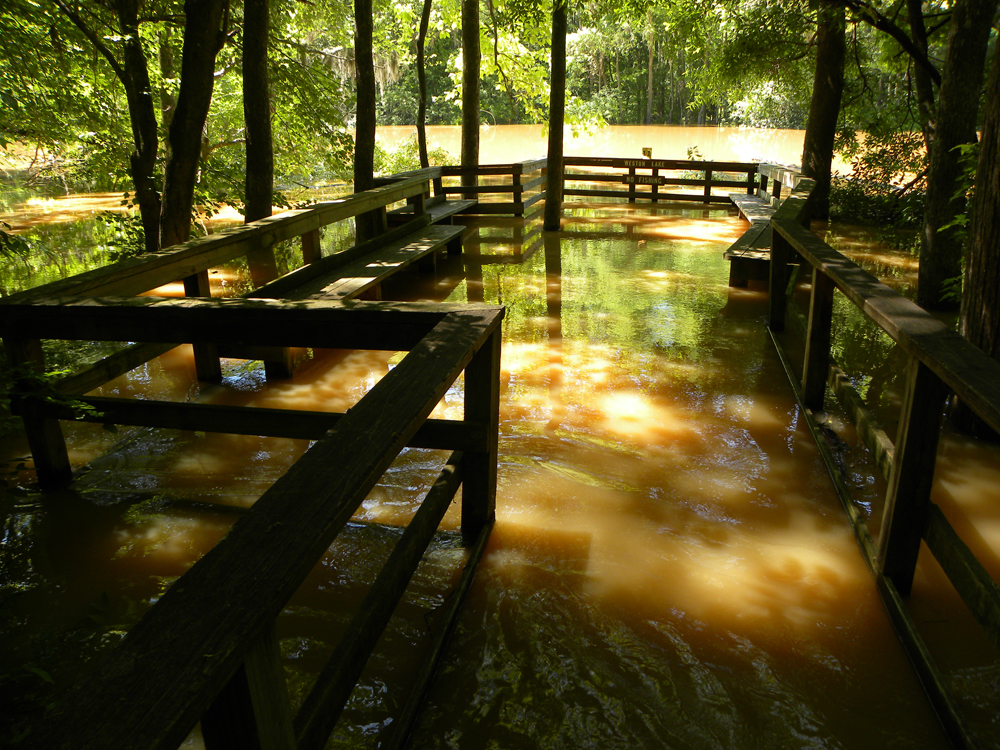|
You are viewing ARCHIVED content published online before January 20, 2025.
Please note that this content is NOT UPDATED, and links may not work. For current information,
visit https://www.nps.gov/aboutus/news/index.htm.

NPS/David Shelley
Contact: Lauren Gurniewicz, 803-647-3969 In recent weeks Congaree National Park has experienced significant flooding as a result of rain in the Midlands and the Congaree River watershed.The remnant bottomland hardwood forests at the park are a good example of how dynamic floodplain processes shape the habitats that support a diversity of plants and animals. Many of the park's natural systems not only withstand flood events, but they depend on periodic flooding from the Congaree and Wateree Rivers to thrive. The recent flooding is the largest the park has experienced in the past nine years. While floods in some areas can be catastrophic events that cause harm to humans and property, flood events in the bottomland forest at Congaree bring nutrients and water into the floodplain. The nutrients are important to sustain the plant and animal life in the park. Floodplains and other wetlands slow the speed of flood waters, and distribute a flood's energy and volume broadly across the landscape. Wetlands store water and allow it to percolate into the ground. This combined storage and braking action lowers flood heights, recharges groundwater, and reduces erosion. Floodplains and other wetland areas not only play a significant role in flood management, but they also improve water quality as they trap and filter nutrients and sediment. When floodwaters are distributed, sediments and nutrients are removed from the water supply. At the same time floodwaters enrich, hydrate and sustain the plant and animals communities in wetland areas like Congaree National Park. While many of the park's trails were recently flooded, the elevated boardwalk trail allowed visitors the opportunity to experience the flooding event. The park has remained open for visitors, with the Harry Hampton Visitor Center operating 9:00 am-5:00 pm daily. For current trail conditions call 803-647-3970. |
Last updated: April 14, 2015
